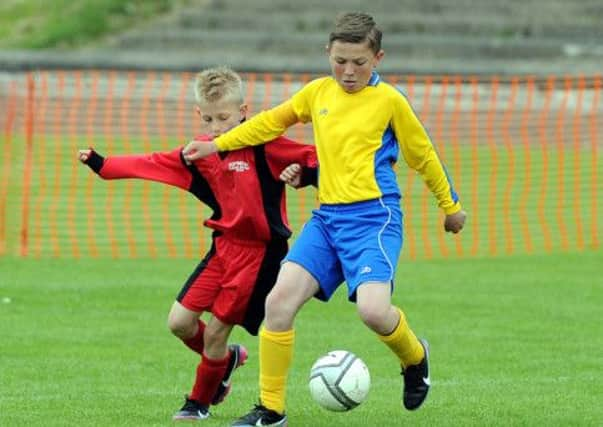Developing positive Mindset is crucial


Over the past several years, an influential learning theory has begun to take hold.
Developed in 2006 by Carol Dweck, the renowned psychologist at Stanford University, the Mindset theory challenges conventional wisdom regarding the development of intelligence and character in young people.
Advertisement
Hide AdAdvertisement
Hide AdThe basic idea, backed by research, is that children who believe their ability is innate are less willing to challenge themselves, for fear of proving themselves inadequate through failing. Those children who believe they can succeed through hard work and practice on the other hand are much more likely to “have a go” and this actually helps them learn and experience success.
The crucial difference between the two types of thinking is in the mindset: the former demonstrates a fixed mindset, while the latter shows a growth mindset. This is an exciting development in the world of experiential learning since Dweck believes that if children’s mindsets can be challenged and changed, they can exceed their own expectations and go on to fulfil their potential. Dweck’s work shows that our perceptions of our ability are much more important than we might think in determining whether we are likely to try new things, or whether we are likely to give up. In this view, intelligence is not fixed and children of any ability can improve their performance if they can change their attitudes to new challenges.
Contrary to what has been assumed in the past, praising children for simply being bright does not help them to succeed. Instead, using Mindset theory, children can develop their abilities, resilience and productivity through initially failing and by being encouraged to try again through hard work and practice. In this way, motivation and confidence, as well as ability improve.
At the trust, we have been using the Mindset approach with positive results. Instructors at all five trust centres across the UK have been trained in the principles of the theory. By introducing Mindset early in courses, via pre-course workshops, young participants can become aware, perhaps for the first time, of the implications of the way they think about their abilities. They go on to experience the link between effort and reward, and instead of being inhibited by challenge, have a chance to experience and practice what it feels like to push past feelings of uncertainty and emerge from difficulty a stronger person.
In October 2012, service personnel children from Beeslack Community High School in Penicuik, Midlothian became the first Scottish school to experience the new Mindset course. Beeslack received financial backing for this first course from the MOD Support Fund. Claire Sutherland of Beeslack comments: “After completing an Outward Bound course, we consistently see an improvement in the personal wellbeing, confidence and resilience of our pupils.”
Since 2012 this approach has become an underlying principle for the trust’s work with other Scottish schools. The course begins in the classroom where young people are taught to think of their abilities differently. Importantly, they are encouraged to see the benefits of trying new challenges, in a safe environment where success can be developed through making mistakes. Using Mindset as a basis, the participants begin to see that their intelligence – and potential – are not fixed but can grow, given the right attitude.
With this grounding, they then go to the trust’s Loch Eil centre in the Highlands for a week-long outdoor learning course in the wilderness, with the focus very much on putting into practice what they have learned in class.
So far, the results have been very encouraging, with participants and their teachers reporting marked changes. As Lisa Millar, secondary teacher at Holy Cross High School in Hamilton, said: “The Mindset course was challenging at first for some pupils. However, I saw how Mindset positively impacted on the pupils’ ability to face challenges throughout the week and this is still evident in school.”
Advertisement
Hide AdAdvertisement
Hide AdWith these positive indicators of accelerated learning and increased motivation, the trust in Scotland will continue to use Mindset principles for the foreseeable future.
• Martin Davidson is head of the Outward Bound Trust in Scotland www.outwardbound.org.uk
• For more information about how your school or youth group can benefit from a Mindset programme contact [email protected] or call 0141 413 0244
SEE ALSO